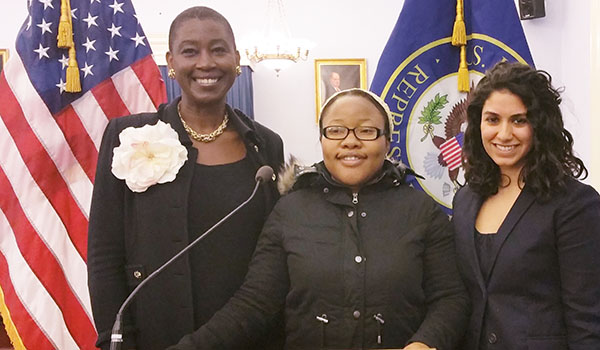Reproductive Justice Clinic
Our vision is to promote the reproductive health and rights of women and girls locally, nationally, and internationally through education, research, and legal advocacy.
The Reproductive Justice Law Clinic brings attention to women's basic human and legal rights, including their security and dignity. Increasingly, pregnant women experience threats of criminal and civil punishment for refusing cesarean sections. Pregnant women in the United States have experienced punishment for falling down steps, enduring miscarriages, refusing bed rest due to employment obligations, and even forced into solitary confinement under the guise of protecting their fetuses.
More than 30 states have enacted laws that override women's advance directives if they are pregnant, giving the state full control over pregnant women's bodies. Many states allow pharmacists to refuse to dispense reproductive medicines to women. Even married women encounter the denial of contraception by pharmacists in the U.S.
And, while the United States incarcerates more women than anywhere else in the world, members of Congress have ignored breast cancer behind bars, shackling pregnant women, pregnant women delivering babies in toilets, birthing on unsanitary concrete floors, and women forced into solitary confinement under the guise of protecting their fetuses. The Reproductive Justice Law Clinic is educating students at the University of California, Irvine to address these concerns.
The Reproductive Justice Clinic is important, because it provides me with the skills to conduct analyses of legislation and court rulings, with the aim of promoting reproductive justice. These types of analyses not only have important legal ramifications, but they also may impact the health of populations—those that are most marginalized by the criminalization of reproductive acts and acts that go against non-normative reproduction—by possibly influencing future law and policy. As a doctoral candidate in public health, this training is particularly important because it does not exist in the regular public health curriculum; yet Reproductive Justice has many important health implications.
- Jaime Margaret Allgood, Ph.D. Candidate, UC Irvine
In the News
- Review: In ‘Birthright: A War Story,’ a 40-Year Offensive Against Reproductive Choices – New York Times
- How the War on Women’s Health Is Bringing ‘The Handmaid’s Tale’ to Life – Daily Beast
- Planned Parenthood Did Nothing Wrong – Politico Magazine
- Op-ed: Statutory Rape Laws – New York Times




